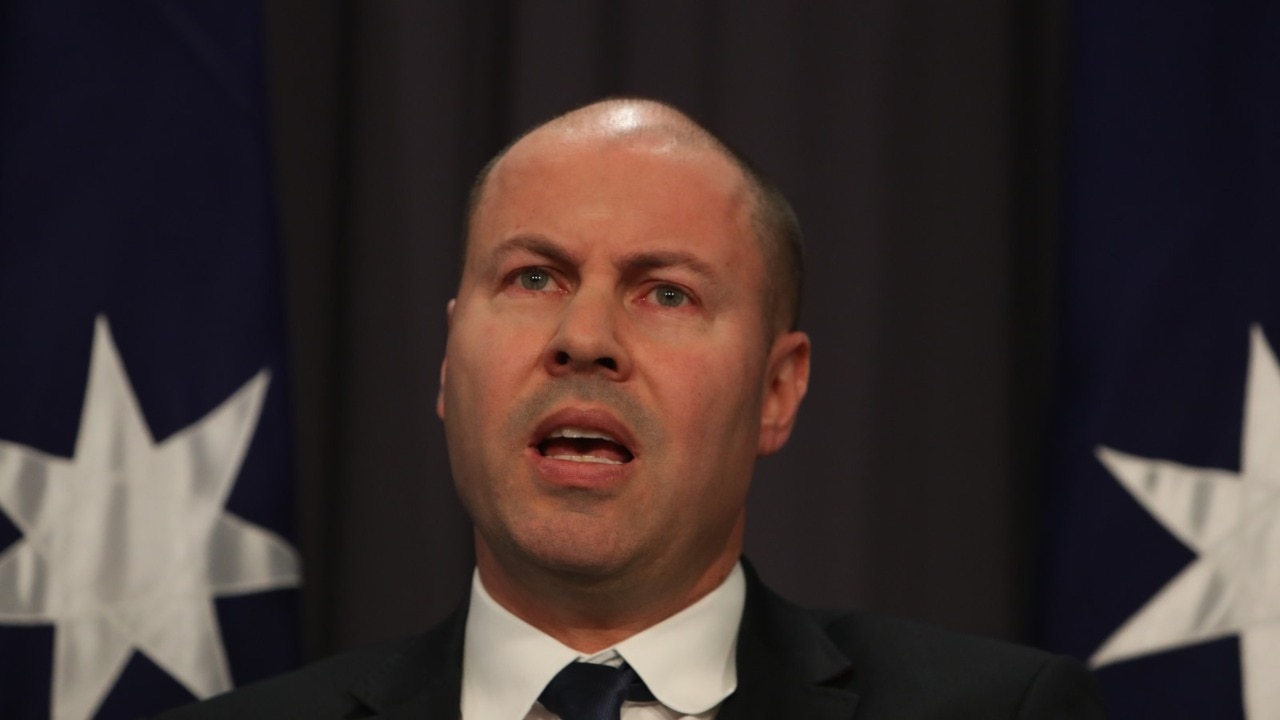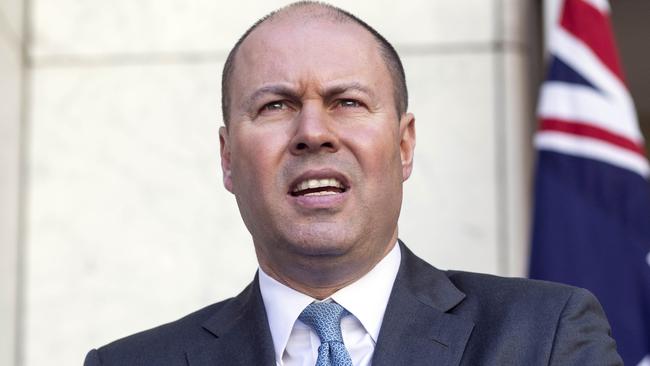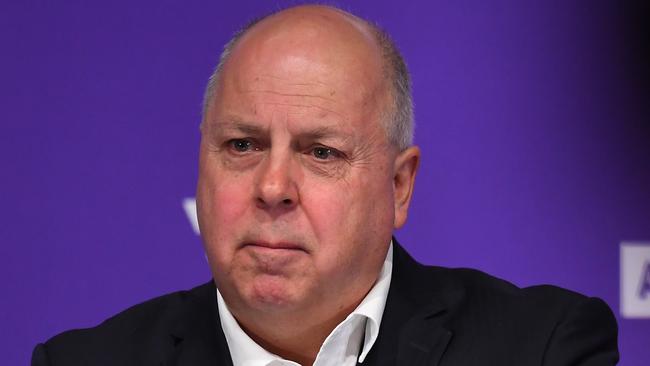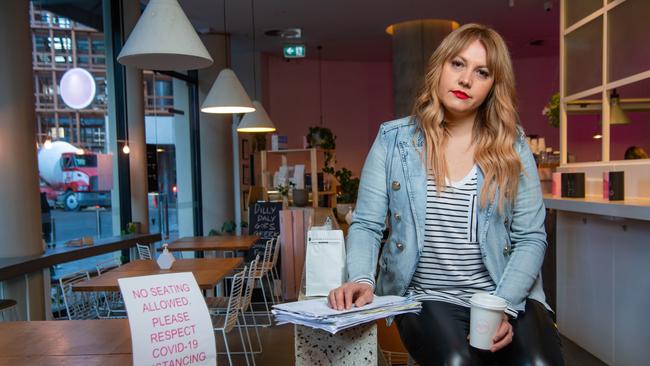Treasurer Josh Frydenberg reveals biggest budget deficit since World War II
The grim economic impact of the pandemic has been revealed by Treasurer Josh Frydenberg with eye-watering debt, a massive budget deficit and skyrocketing unemployment set to impact Australia for generations.

Coronavirus
Don't miss out on the headlines from Coronavirus. Followed categories will be added to My News.
The coronavirus crisis has blown the biggest hole in Australia’s budget since World War II, with Josh Frydenberg unveiling an eye-watering deficit of almost $190bn on Thursday.
The Treasurer’s $289bn economic response has saved an estimated 700,000 jobs, lowering the government’s feared unemployment peak by five percentage points.
>> CLICK HERE FOR THE LATEST ON JOSH FRYDENBERG’S BUDGET ANNOUNCEMENT
Before Mr Frydenberg’s announcement, the Herald Sun reported that Australia’s gross debt was expected to climb to $850bn.
Revenue from company tax will slump by at least $25bn across 2019-20 and 2020-21, and economists suggested a child born today could be 30 before Australia paid off its pandemic-induced debt.

Business investment is also tipped to plummet 12.5 per cent this financial year.
The federal budget update is expected to show Melbourne’s six-week lockdown will wipe $3.3bn — or 0.75 per cent — off national economic growth between now and September.
And new state government modelling shows Victoria’s economy will shrink by 5.25 per cent this year instead of growing by up to 2.9 per cent.
Victorian Treasurer Tim Pallas released his own financial update on Thursday.
The new figures come after the federal government unveiled changes to JobKeeper and JobSeeker from the end of September.
“The government is providing timely economic support … helping those who need it most,” Mr Frydenberg said.
“We carefully designed our economic support measures to ensure we maintained the structural integrity of the budget.”
Mr Pallas said the pandemic was “one of the biggest economic challenges our state and our country has ever faced”.

“We’re doing everything we can to support the tens of thousands of Victorian businesses, workers and families doing it tough,” he said.
“For the sake of our economy and the ones we love, the most important thing we can do right now is follow the rules designed to keep us safe.”
EY Oceania chief economist Jo Masters said it could be 25 to 30 years before Australia paid down the gross debt, although “there’s not a gold equation that tells you when you start to pay it back and how quickly”.
South Yarra cafe Dilly Daly lost 90 per cent of its business during the second lockdown.

“We’re on all the apps and have our online takeaway platform, but since the second lockdown we’ve seen orders drop off and not get back up,” owner Melissa Glentis said.
She had to stand down 11 of 13 staff members, with many ineligible for JobKeeper.
Describing South Yarra as a “ghost town”, she said: “Any help is better than none but I just hope there’s still a business for them to come back to.”
The federal budget update will detail the country’s debt and deficit position in 2019-20 and 2020-21, as well as forecasting the level of unemployment and key revenue streams.
Finance Minister Mathias Cormann said forecasts over four years and 10 years would be provided in the budget in October.
“The economic and fiscal outlook remains highly uncertain given what is continuing to occur globally and in some parts of Australia,” he said.
MORE NEWS
CHADSTONE, NORTHLAND TO BAN SHOPPERS WITHOUT MASKS
